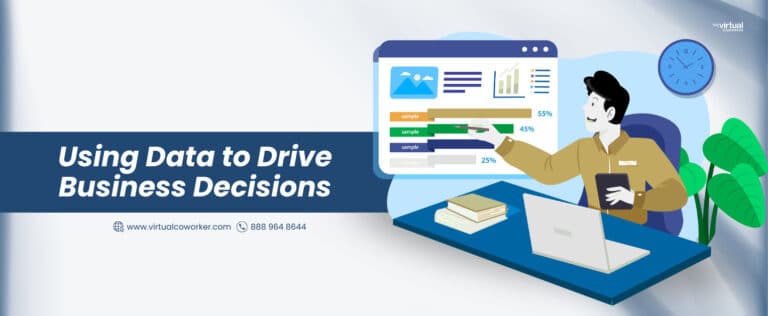How Virtual Assistants Support Business Development
Business development isn’t just about landing new clients, but about building a strong, consistent system for growth. Yet many entrepreneurs and sales teams struggle to balance lead generation, follow-ups, and relationship-building while keeping operations running smoothly.
That’s where Virtual Assistants (VAs) step in.
By taking over time-consuming yet critical business development tasks, VAs help you stay consistent, organized, and focused on closing deals.
Why Consistency Matters in Business Development
Growth doesn’t happen in big bursts, but occurs through consistent action. Sending outreach emails, tracking conversations, and following up on leads may not feel glamorous, but they are the backbone of business development.
According to a Salesforce survey, 79% of salespeople who use productivity tools report being able to spend more time building customer relationships. Delegating to a VA ensures that those relationship-building tasks never slip through the cracks.
The Role of VAs in Business Development
1. Lead Generation
Finding new opportunities is the first step in growing your business. A skilled VA can:
- Research and identify potential clients using platforms.
- Build targeted prospect lists tailored to your ideal client profile.
- Qualify leads by checking for fit, ensuring you’re only engaging with those most likely to convert.
Tools VAs often use: LinkedIn Sales Navigator, Apollo.io, Hunter.io, and CRM platforms like HubSpot or Zoho.
2. Follow-Ups That Don’t Slip Through the Cracks
Statistics show that 80% of sales require at least five follow-up contacts; yet, many businesses fail to maintain consistency. VAs ensure no lead is left behind by:
- Sending timely follow-up emails.
- Scheduling and confirming calls or meetings.
- Tracking all communication within your CRM for visibility and accountability.
Tools VAs often use: Gmail/Outlook, Salesforce, Pipedrive
3. Nurturing Relationships
Long-term growth comes from strong client relationships, not one-off deals. VAs help nurture prospects and clients by:
- Sending check-in emails or newsletters.
- Engaging with leads on social media (liking, commenting, and sharing relevant content).
- Coordinating thank-you notes, special offers, or event invitations.
Tools that VAs often use include Mailchimp, ActiveCampaign, Hootsuite, and Buffer.
4. Data and Reporting
Data, not guesswork, should guide business development decisions. VAs can:
- Track KPIs like lead conversion rates, email open rates, and meeting outcomes.
- Prepare weekly or monthly reports for your review and approval.
- Identify areas where strategies can be adjusted to achieve better results.
Tools that VAs often use include Google Sheets, Excel, HubSpot dashboards, and custom reporting tools.
Final Thoughts
Business development thrives on consistency, attention, and follow-through. A Virtual Assistant ensures that vital tasks are always handled, while also helping you build stronger relationships and accelerate growth.
Looking to strengthen your business development strategy? Partner with a VA through Virtual Coworker and start building momentum today!






